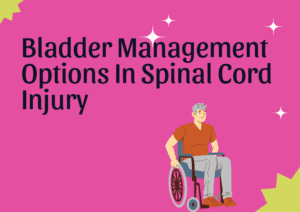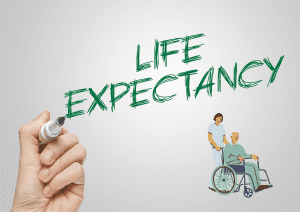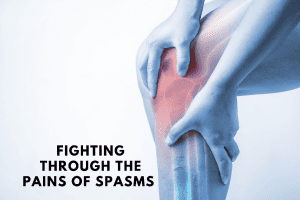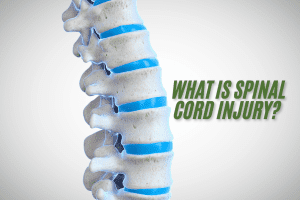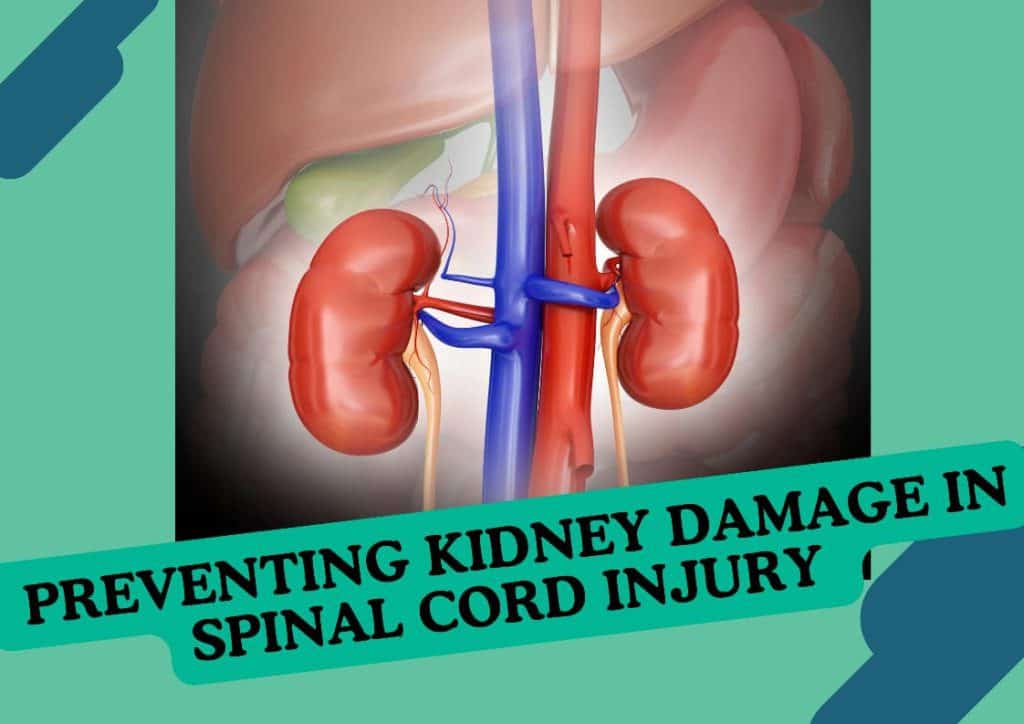
By Scihealthhub – October 9, 2024
In this article, we will explain why spinal cord injury puts you at a high risk of developing kidney damage and provide you with a comprehensive guide on how to prevent it.
People with spinal cord injury have a higher risk of developing kidney damage and disease. In the past, kidney disease was the leading cause of death in people with spinal cord injury (1). A 2006 study involving veterans with spinal cord injury in the USA found that over 1 in 3 (about 35%) had long-term kidney disease (2). This is more than twice the rate reported among the general population, estimated at about 15% (3).
Long-term kidney disease, medically known as chronic kidney disease (CKD), is an under-recognized leading cause of death globally. It causes more deaths than breast cancer or prostate cancer (5). Estimates from the 2017 Global Burden of Disease study showed that CKD resulted in 1.2 million deaths in 2017 and was the 12th leading cause of death worldwide (4).
What Do the Kidneys Do?
The kidneys contain millions of tiny filters through which they perform their main job of filtering the blood, removing waste, and regulating excess water in the body.
They also produce important hormones that help the body produce mature red blood cells and control blood pressure.
Damage to the kidneys can lead to structural changes in the nephrons (the filtering units of the kidneys), making it difficult for them to function properly.
As a result, waste, toxins, and excess water begin to accumulate in the body. There may also be a low red blood cell count (anemia) and high blood pressure.
If left untreated, the damage may progress to kidney failure (also known as end-stage renal disease or ESRD), requiring kidney replacement therapy in the form of dialysis or a kidney transplant.
What Causes Kidney Damage in People with Spinal Cord Injury?
People with spinal cord injury face double jeopardy when it comes to the causes and risk factors for kidney disease. In addition to traditional causes faced by everyone, they also encounter risk factors specific to spinal cord injury, explaining their higher risk of kidney disease.
Traditional Causes and Risk Factors
These affect everyone, including people with spinal cord injury. The most prominent are:
- Diabetes
- High blood pressure
Both diabetes and high blood pressure are the leading risk factors for kidney disease in the general population, accounting for 40% and 30% of ESRD cases, respectively (6).
Other traditional risk factors for kidney disease include:
- Cigarette smoking
- Older age
- Obesity
- Glomerulonephritis and interstitial nephritis – inflammation of parts of the kidney’s filtering units
- Polycystic kidney disease – a hereditary condition in which cysts (fluid-filled sacs) develop within the kidneys
- Prolonged obstruction of the urinary tract – from conditions like an enlarged prostate, kidney stones, or certain cancers
- Frequent use of medicines that can damage the kidneys – especially nonprescription pain relievers like aspirin and ibuprofen
Specific Risk Factors
These are peculiar to people with spinal cord injury. They include:
- Chronic or recurrent kidney infections
- Bladder dysfunction, which may manifest as:
- Difficulty passing urine (bladder outlet obstruction)
- Urinary incontinence (leaking of urine)
- Inability to empty the bladder completely
- Elevated bladder pressure (increased intravesical pressure)
- Reflux (vesico-ureteral reflux) – abnormal flow of urine from the bladder back towards the kidneys
- Use of catheters
- Kidney stones
Ways to Prevent Kidney Damage if You Have Spinal Cord Injury
The following measures can help reduce your risk of kidney damage:
Prevent Urinary Tract Infections (UTIs)
It is common for people with spinal cord injury to experience frequent, recurrent, or chronic UTIs, which can lead to kidney damage and reduced kidney function.
One study reported that people with spinal cord injury experience an average of about 18 UTI episodes per year and about 1.8 episodes of fever related to UTIs annually (8).
Taking steps to reduce the risk of UTIs can protect your kidneys.
Treat Every UTI Adequately
If you develop a UTI, it’s important to see your doctor for proper diagnosis and treatment. Your doctor will usually prescribe antibiotics to cure the infection.
Make sure to take the antibiotics exactly as prescribed and for the recommended duration, typically 10 to 14 days for people with spinal cord injury. Failure to do so may increase the risk of developing antibiotic-resistant bacteria and kidney damage.
Drink Plenty of Water
Adequate daily water intake is crucial for health and well-being, especially for people with spinal cord injury. Drink water not just because you’re thirsty, but because it’s a necessity.
There is no consensus on the exact amount of water you should drink daily, but consuming 3 to 4 liters a day is generally sufficient, depending on the weather conditions where you live.
Drinking enough water helps your kidneys and urinary system in the following ways:
- Ensures regular urine flow, which flushes your urinary system and reduces the risk of UTIs
- Reduces the risk of stone formation in your urinary system
Use Clean Intermittent Catheterization Often
Clean intermittent catheterization involves using a catheter to drain urine from your bladder. Experts generally agree that this is the preferred method for emptying the bladder in people with spinal cord injury.
Research has shown that it is associated with a reduced risk of UTIs, lower bladder pressure, and reduced vesico-ureteral reflux (9, 10).
It also helps fully empty the bladder, preserves kidney health, provides more autonomy, and is not a barrier to intimacy (11).
Experts recommend using clean intermittent catheterization as much as possible. Create a conducive environment for performing it at home.
Consider Using ACE Inhibitors or ARBs
Two types of blood pressure-lowering medicines, ACE inhibitors and ARBs, have special protective effects on the kidneys. Research has shown that these medicines can prevent or slow the progression of kidney damage (12).
Ask your doctor if one of these medicines would be beneficial for preventing kidney damage in your case.
Consider Using Anti-Muscarinic Medicines
Anti-muscarinic medicines can also help protect kidney health and prevent kidney damage in people with spinal cord injury. These medications reduce bladder pressure and vesico-ureteral reflux.
The most commonly used anti-muscarinic medicine is oxybutynin. Ask your doctor if you could benefit from taking oxybutynin to prevent kidney damage.
Get Treatment for Any Medical Conditions That Can Damage the Kidneys
Diabetes and high blood pressure are the two leading causes of kidney damage in the general population. High levels of bad cholesterol can also harm the kidneys and promote the development of kidney disease (14, 15).
Work with your doctor to check for these conditions and control them if present.
Quit Smoking
Smoking is harmful and can contribute to the development and progression of kidney disease. It has also been linked to chronic obstructive pulmonary disease (COPD), heart disease, and certain cancers.
If you’re a smoker, talk to your doctor for help with quitting. Your doctor can recommend medicines to assist you in stopping.
Maintain a Healthy Weight
People who are overweight or obese are at higher risk of developing health conditions like hypertension, diabetes, heart disease, and kidney disease (16).
Your healthcare provider will help you assess your weight and determine if you’re at a healthy range. If not, they can assist with a weight loss plan.
Avoid Medicines That Can Harm the Kidneys
Over-the-counter painkillers like aspirin and nonsteroidal anti-inflammatory drugs (NSAIDs) such as diclofenac and ibuprofen are known to harm the kidneys. NSAID use has been linked to the development and progression of kidney disease, as well as worsening high blood pressure and heart disease (13).
If you need to use these medicines, consult your doctor, who will weigh the risks against the benefits and advise you appropriately.
We hope this article helps you in your journey to keep your kidneys healthy and prevent kidney damage if you have spinal cord injury.
If you found this article helpful, please click the subscribe button. You can also find us on Twitter and Facebook.


